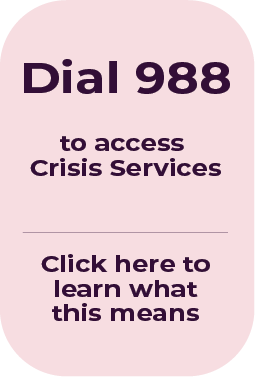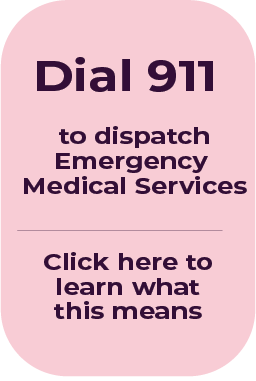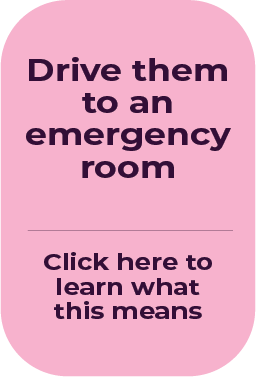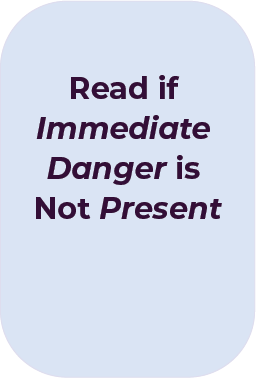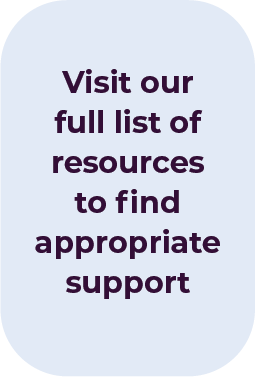There is no “wrong” way to help someone when they are in a mental health crisis. The end goal is the same: for them to be safe, healthy and well.
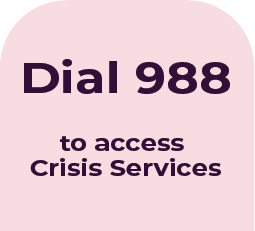
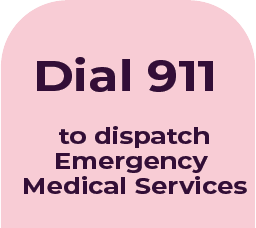
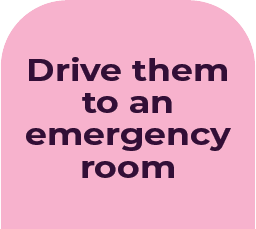
Continue reading this section to learn more about each option.

Addressing Teen Mental Health Challenges
Toolkit Tailored for You
- Express thoughts of self-harm (for example, ‟I want to die” or ‟I don’t want to be here anymore”)
- Make threats to harm others or themselves
- Harm themselve no-list-styles (for example, cutting or burning)
- Get severely agitated or aggressive (for example, physical aggression, destroying property, hostility)
- Hallucinate or become delusional
- Completely isolate themselves



- First, take a deep breath and assess the situation. It can be overwhelming, and it is ok to feel scared.
- If you are worried about self harm now or in the immediate future, there are three things you can do to prevent this from happening:
- In this difficult situation each option has challenges. It is important to understand them as you choose how best to proceed seeking appropriate care.
When 988 is called for a teen in a mental health crisis
- An automated greeting will ask if you need a specific support line. Press 1 for Veterans Crisis Line, 2 for Spanish language, or 3 for LGBTQ+ support. Selecting one of these options will direct you to a counselor specifically trained to provide culturally competent and informed support.
- If you do not select an option, you’ll be routed to a local crisis center based on your area code
- A trained, compassionate crisis counselor will answer to provide judgment-free listening, offer coping strategies, share resources, and ensure your safety and well–being.
- You are in complete control over what information you feel comfortable sharing. Everything you discuss is kept fully confidential, unless specific permission is granted to share details with emergency services in high-risk situations. What you choose to disclose is up to you.
- The crisis counselor will assess the situation to determine the right support options, guidance, and advice tailored for you and your specific needs.
- Unless immediate risk exists, you choose the next steps. The counselor guides you through options but will not force you to make a decision or pursue anything you are uncomfortable with.
- Counseling sessions last as long as needed. You won’t be rushed off the line or cut off after a certain amount of time. 988 counselors will stay in contact for as long or as often as would be helpful for you. There are no limits when you’re in a crisis.
- Referrals and resources for further mental health services can be provided if you wish to pursue ongoing care. 988 serves as an accessible entry point to longer-term treatment.
When 911 is called for a teen in a mental health crisis
- An Emergency Dispatcher will answer your call
- They will ask if you are in immediate danger, your name, your location (address)
- Follow the steps below to inform them you or a friend are experiencing a mental health crisis and request a Crisis Intervention Trained Officer
- A Crisis Intervention Officer will either meet your friend at their home or at the police station and admit them into the hospital.
- After admission, your friend cannot be contacted for the next 24 to 72 hours, while they are under observation and receiving the needed intervention.
When a teen is driven to the hospital for a mental health crisis
- If a teen is driven to the hospital, it should only be done if it’s believed that they will remain safe and under control in the car.
- Once in the emergency room (ER), they will be “voluntarily” admitted. This allows their parent(s)/guardian(s) to see them while they are there and remain as the ultimate decision makers during the teen’s stay.
- Depending on how equipped the chosen ER is for adequately dealing with a mental health crisis, there may be long wait times or the teen may be transferred to a different hospital.
When a teen is hospitalized for a mental health crisis
- Trained hospital staff may determine that the mental health crisis requires admission to the hospital. The teen’s parent/guardian will have regular communication with the medical team.
- Your friend may benefit from individual therapy, group therapy and/or prescribed medication. They may also receive treatment at a residential or partial hospitalization program (PHP).
- Healthcare professionals may also determine that it is safe for your friend to return home.
- Know that if you aided in having your friend transported to an ER for safety during a mental health crisis, you have provided lifesaving support.
- It is important that their appointed guardian understands how best to advocate for your friend’s needs. Referring them to the Los Angeles County Department of Public Health’s Mental Health Toolkit for Parents and Guardians of Teens is a great resource to share with your friend’s family.
- It’s important to understand that everyone’s needs and responses during a mental health crisis are different and the differences in family dynamics and support systems around your friend play critical roles.
- Try and keep an open mind and be sure to care for yourself when assisting a friend in crisis, including ensuring that you, too, have supports in place. Try identifying your support system here.
During a mental health crisis, it can be difficult for your friend to think logically. The best thing you can do for your friend is to make them feel safe, make sure their physical needs are met, and help them to remain calm.
- Validate their words: Listening non-judgmentally and saying simple phrases like, “That sounds hard”, can help.
- Ask them how you can help: If they don’t have answer just yet, you can encourage them to think of some ways and let you know later.
- Be understanding of their feelings: If your friend expresses feeling depressed, they may not want to hang out as often. But keep inviting and talking to them, it will help them to know you value their company.
- Keep the conversation between you two: It takes a lot of courage and trust for your friend to share about their mental health and you want to respect their trust. However, if a friend needs help from an adult, it is ok to ask for that help. Remember that if you think your friend may harm themselves or others, it’s important to reach out to a trusted adult for help.
- Suggest that they connect with a crisis counselor: Share the list from the Crisis Lines & Resources, above. If they are already receiving mental health treatment, encourage them to reach out to their therapist or psychiatrist.
- Talk about coping skills: These can be used before, during or after an outburst. Try selecting some items using each of the senses, together. For example: breathing exercises, talking to a friend, punching a pillow, listening to music.
Remember that your words are meaningful to your friend when they are in need of mental health support and can impact how they feel after the conversation. Learn more about this by reading Your Language Matters, navigate uncomfortable situations by reading Seize the Awkward, and see examples by reading Stories: Talking about mental health with friends.
Friends often naturally feel comfortable sharing personal information with their peers. At some point, you may feel that the support they need is beyond what you can offer. Even more, you may realize that an adult’s help is needed. In these situations, it’s better to be safe than sorry.
- If you’re worried about their safety: if your friend is hurting themselves, talking about it, or talking about hurting others.
- You have reason to believe your friend is developing an eating disorder: eating disorders are a serious health threat.
- If you have reason to believe that they are experiencing a psychotic break such as they are experiencing hallucinations or beliefs that aren’t realistic.
- If the situation feels more adult than you should be/or are comfortable dealing with. Does it feel like you may be too young for the information being shared? Does your gut tell you something doesn’t feel right? Go with that feeling and ask an adult for help.
- If your own mental health is being impacted. If you, too, are feeling anxious, depressed, or are considering harming yourself, it is important that you also seek help from a trusted person in your life.
If I turn to an adult, will I be betraying my friend?
Follow these two steps to let your friend know that you think it would be best to bring in an adult’s help:
If your friend still asks you not to share the information with an adult, but you feel that not doing so will only leave them or someone else in harm’s way, prioritize safety - tell an adult.
